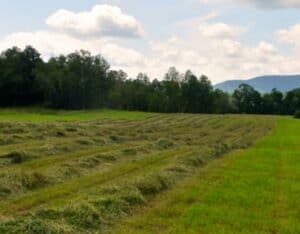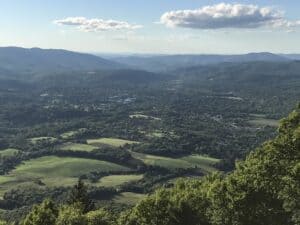 Farmland the world over is under pressure of conversion to other uses, such as for house lots, parking lots, and industrial development. A NY Times article last week tells the story of loss of farmland due to rising land prices. According to a report by the American Farmland Trust, Massachusetts farmland is ranked ninth in the U.S. as most threatened to conversion. Over a recent decade, 8% of Massachusetts cropland was lost to development.
Farmland the world over is under pressure of conversion to other uses, such as for house lots, parking lots, and industrial development. A NY Times article last week tells the story of loss of farmland due to rising land prices. According to a report by the American Farmland Trust, Massachusetts farmland is ranked ninth in the U.S. as most threatened to conversion. Over a recent decade, 8% of Massachusetts cropland was lost to development.
Our neighbors are writing about the values of farmland and farming in Williamstown, including WRL Trails Committee member and journalist Lauren Stevens, Williamstown Agricultural Commission member Sarah Gardner, and Berkshire Agricultural Ventures director Glenn Bergman. What’s your opinion of the state of farming?
Luckily, avenues exist for farmland preservation in our state. Under the Chapter 61A current use program, farmland owners committed to keeping their land under agricultural practices receive property tax relief for voluntary enrollment. Other landowners have opted to donate or sell their development rights to the public through the Agricultural Preservation Restriction program (APR), or to a trust under a conservation restriction, thereby protecting the farmland for agricultural use forever.
Conserved land remains under ownership of the landholder. Should they decide to sell, any permanent restrictions go with the land. In the case of land under Chapter 61A, in exchange for the tax savings, landowners agree to giving the municipality the right of first refusal to purchase it at fair market value should they choose to sell or convert the land to other uses. The objective of the first refusal option is to allow for the continued sustainable management of the land.
But much of the farmland and productive forestland in Williamstown stands unprotected. This this makes many of us nervous about the local economy, access to healthy foods, and the very rural character of our town.
And this brings us to 0 Oblong Road, Williamstown. The property is under contract for sale and the town is deliberating on whether it will exercise their right of first refusal, or waive it. Because this property and adjacent parcels, that together comprise Sweet Brook Farm, hold a great deal of value as farmland, as ecologically important habitat (e.g., fish, beavers, birds), and as a cultural and scenic asset of our town, many people feel it should be preserved as farmland. To this end, Williamstown Rural Lands is seeking assignment of the town’s first refusal option. Join us at a public hearing with Williamstown Select Board on Monday, November 28 to hear the deliberations and voice your opinion. 
We know that local farmland and farming operations are pillars in rural communities. Farms contribute to a town’s economic development, serve to enhance local food security, and comprise a key component of the gorgeous rural landscape and character. People come to our beautiful Williamstown town for weddings and other celebrations in our rural areas and to enjoy our scenic vistas. Consider those shoppers and food producers at farmer’s markets all over Berkshire County, and the food banks that receive food from local farms. Consider the security in knowing that food is produced locally. Consider farming as a livelihood and an identity for farmers, as a cultural asset for this town, and as a security blanket that provides health and well-being to all.
Importantly, know that there are programs and funding opportunities designed to keep farmers farming. And, many people in the Williamstown Rural Lands community who want to help.
– Robin Sears is the Executive Director of Williamstown Rural Lands and welcomes discussion on this topic.
